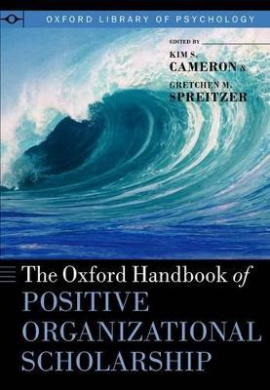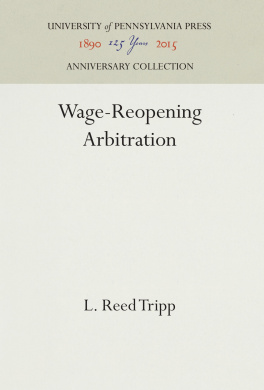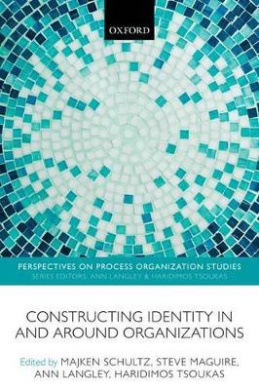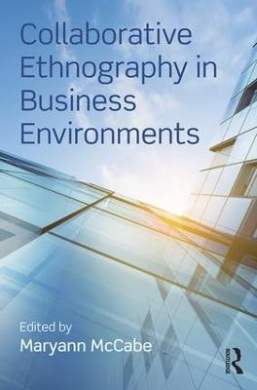Description
Contents; 1. Introduction; What is Positive about Positive Organizational Scholarship?; Kim C. Cameron and Gretchen M. Spreitzer; Part One: Positive Individual Attributes; 2. Psychological Capital; Psychological Capital: Meaning, Findings, and Future Directions; Carolyn M. Youssef and Fred Luthans; 3. Prosocial Motivation; Prosocial motivation at work: When, Why, and How Making a Difference Makes a Difference; Adam M. Grant and Justin M. Berg; 4. Callings in Work; Callings; Amy Wrzesniewski; 5. Work Engagement; Being There: Work Engagement and Positive Organizational Scholarship; Nancy P. Rothbard and Shefali V. Patil; 6. Positive Identity; Positive Identity Construction: Insights from Classical and Contemporary Theoretical Perspectives; Laura Morgan Roberts and Stephanie J. Creary; 7. Proactivity; Proactivity in the Workplace: Looking Back and Looking Forward; Chiahuei Wu and Sharon K. Parker; 8. Creativity; Striving for Creativity: Building Positive Contexts in the Workplace; Jing Zhou and Run Ren; 9. Curiosity; Organizing the Cat? Generative Aspects of Curiosity in Organizational Life; Spencer Harrison; 10. Positive Traits; Some Traits Associated with Flourishing at Work; Joyce E. Bono, Stacy E. Davies, and Rena L. Rasch; 11. The Neuroscience Underpinning of POS; Exploring the Minds of Managers: Insights from Three Neuroscience Studies; Richard P. Bagozzi and Willem Verbeke; Part Two: Positive Emotions; 12. Positive Energy; Human Energy in Organizations: Implications for POS From Six Interdisciplinary Streams; Gretchen M. Spreitzer, Chak Fu Lam, and Ryan W. Quinn; 13. Positive Emotions; Positive emotions: Broadening and Building Upward Spirals of Sustainable Enterprises; Leslie E. Sekerka, Tanya Vacharkulksemsuk, and Barbara L. Fredrickson; 14. Subjective Well-being; Subjective Well-being in Organizations; Arnold B. Bakker and Wido G.M. Oerlemans; 15. Passion; Passion; Kimberly H. Perttula and Melissa S. Cardon; 16. Emotional Intelligence; Social Context and the Psychology of Emotional Intelligence: A Key to Creating Positive Organizations; Oscar Ybarra, Laura Rees, Ethan Kross, and Jeffrey Sanchez-Burks; 17. Group Emotions; Shared Positive Affect in Workgroups; Seung-Yong Rhee and Hye Jeong Yoon; Part Three: Strengths and Virtues; 18. Virtuousness; Virtuousness in Organizations; Kim S. Cameron and Bradley Winn; 19. Forgiveness; Forgiveness at Four Levels: Intrapersonal, Relational, Organizational, and Collective-Group; David S. Bright and Julie J. Exline; 20. Humility; Exploring the Relevant and Implications of Humility in Organizations; Bradley P. Owens, Wade C. Rowatt, and Alan L. Wilkins; 21. Compassion; Compassion Revealed: What We Know About Compassion at Work (and Where We Need to Know More); Jacoba M. Lilius, Jason Kanov, and Jane E. Dutton; 22. Hope; Imagining Hope in Organizations: From Individual Goal-Attainment to Horizons of Relational Possibility; Arne Carlsen, Aina Landsverk Hagen, and Tord F. Mortensen; 23. Courage; Courage in Organizations: An Integrative Review of the Difficult Virtue; Monica C. Worline; 24. Justice; A Positive Lens on Organizational Justice: Toward a Moral, Constructive, and Balanced Approach to Reactions to Third-Party (In)Justice; David M. Mayer; 25. Integrity; Research on Behavioral Integrity: A Promising Construct for Positive Organizational Scholarship; Tony Simons, Edward C. Tomlinson, and Hannes Leroy; 26. Positive Ethics; Positive Business Ethics: Grounding and Elaborating a Theory of Good Works; Jason M. Stansbury and Scott Sonenshein; 27. Leveraging Strengths; Productivity through Strength; Jim Asplund and Nikki Blacksmith; 28. Character Strengths in Global Managers; The Positive Power of Character Strengths and Virtues for Global Leaders; Armenio Rego, Stewart Clegg, and Miguel Pinha e Cunha; Part Four: Positive Relationships; 29. High Quality Connections; High Quality Connections; John Paul Stephens, Emily Heaphy, and Jane E. Dutton; 30. Relational Coordination; New Directions for Relational Coordination Theory; Jody Hoffer Gittell; 31. Reciprocity; A Dual Model of Reciprocity in Organizations: Moral Sentiments and Reputation; Wayne Baker; 32. Intimacy; Workplace Intimacy in Leader-Follower Relationships; Ronit Kark; 33. Civility; Civility; Christine L. Porath; 34. Trust; POS and Trust in Leaders; Aneil K. Mishra and Karen E. Mishra; 35. Trustworthiness; Perspective Taking: Building Positive Interpersonal Connections and Trustworthiness One Interaction at a Time; Michele Williams; 36. Humor; The Laughter Advantage: Cultivating High Quality Connections and Workplace Outcomes Through Humor; Cecily D. Cooper and John Sosik; 37. Psychological Safety; Psychological Safety: A Foundation for Speaking Up, Collaboration, and Experimentation in Organizations; Ingrid M. Nembhard and Amy C. Edmondson; Part Five: Positive Human Resource Practices; 38. Career Development; Personal Growth Through Career Work: A Positive Approach to Careers; Douglas T. Hall and Mireia Las Heras; 39. Mentoring; Relational Mentoring: A Positive Approach to Mentoring at Work; Belle Rose Ragins; 40. Socialization; Socialization Perspectives and Positive Organizational Scholarship; Blake E. Ashforth, Karen K. Myers, and David M. Sluss; 41. Diversity; A Positive Approach to Studying Diversity in Organizations; Lakshmi Ramarajan and David Thomas; 42. Communication; The Role of Communication in Positive Organizational Scholarship; Larry D. Browning, G.H. Morris, and Kerk F. Kee; 43. Conflict Resolution; Parallel and Divergent Predictors of Objective and Subjective Value in Negotiation; Jared R. Curhan and Ashley D. Brown; 44. Negotiating; The Mindful Negotiator: Strategic Emotion Management and Wellbeing; Shirli Kopelman, Orli Avi-Yonah, and Akshaya K. Varghese; 45. Work-Family Dynamics; Positive Work-Family Dynamics; Jessica Keeney and Remus Ilies; Part Six: Positive Organizational Practices; 46. Symbolism in Organizations; The Generative Potency of Organizational Symbols: Implications for Positive Organizational Scholarship; Mary Ann Glynn and Lee Watkiss; 47. Resourcefulness; Resources, Resourcing, and Ampliative Cycles in Organizations; Martha Feldman and Monica Worline; 48. Collective Efficacy; Collective Efficacy Beliefs, Organizational Excellence, and Leadership; Roger D. Goddard and Serena J. Salloum; 49. The Design of Work; The Design of Jobs: A Strategy for Enhancing the Positive Outcomes of Individuals at Work; Greg R. Oldham; 50. Mindful Organizing; Mindful Organizing: Establishing and Extending the Foundations of Highly Reliable Performance; Timothy J. Vogus; 51. Organizational Identity; The Defining Role of Organizational Identity for Facilitating Stakeholder Flourishing: A Map for Future Research; Celia V. Harquail and Shelley L. Brickson; 52. Organizational Energy; Organizational Energy; Bernd Vogel and Heike Bruch; 53. Innovation; Innovativeness as Positive Deviance: Identifying and Operationalizing the Attributes, Functions and Dynamics that Create Growth; Jeff DeGraff and Dan Nathan-Roberts; 54. Organizational Boundaries; Margins, Membership, and Mobility: Re-defining Boundaries in Collaborative Endeavors; Rebekah Dibble and Cristina B. Gibson; Part Seven: Positive Leadership and Change; 55. Organizational Development; The Spirits of Organization Development or Why OD Lives Despite Its Pronounced Death; Jean M. Bartunek and Richard W. Woodman; 56. Appreciative Inquiry; Positive Organizational Development: Innovation-Inspired Change in an Economy and Ecology of Strengths; David L. Cooperrider and Lindsey N. Godwin; 57. Positive Change Attributes; Seeing and Acting Differently: Positive Change in Organizations; Robert E. Quinn and Ned Wellman; 58. Implementing Positive Change; What Makes an Organizational Change Process Positive?; Karen Golden-Biddle and Jina Mao; 59. Authentic Leadership; Advances in Theory and Research on Authentic Leadership; Bruce J. Avolio and Ketan Mhatre; 60. Leadership Development; Toward a Positive and Dynamic Theory of Leadership Development; D. Scott DeRue and Kristina M. Workman; 61. Peak Performance; Organizational Sustainability: Organization Design and Senior Leadership to Enable Strategic Paradox; Wendy K. Smith, Marianne W. Lewis, and Michael L. Tushman; 62. Strategic Change; Emotions and Strategic Change; Quy Nguyen Huy; 63. Strengths-Based Strategy; Positive Strategy: Creating and Sustaining Strengths-Based Strategy That SOARs and Performs; Lynn Perry Wooten and Jacqueline M. Stavros; Part Eight: A Positive Lens on Problems and Challenges; 64. Managing the Unexpected; Managing the Unexpected; Kathleen M. Sutcliffe and Marlys K. Christianson; 65. Healing After Trauma; Organizational Healing: A Relational Process to Handle Major Disruption; Edward H. Powley; 66. Organizational Recovery; Recovery: Non-Work Experiences that Promote Positive States; Sabine Sonnentag, Cornelia Niessen, and Angela Neff; 67. Responding to Crisis; Orientations of Positive Leadership in Times of Crisis; Erika Hayes James and Lynn Perry Wooten; 68. Resilience Under Adversity; Resilience at Work: Building Capability in the Face of Adversity; Brianna Barker Caza and Laurie P. Milton; 69. Post-traumatic Growth; Post-traumatic growth: A Missed Opportunity for Positive Organizational Scholarship; Sally Maitlis; 70. Ambivalence; Just a Good Place to Visit? Exploring Positive Responses to Psychological Ambivalence; Michael G. Pratt and Camille Pradies; 71. Responding to Stress; Stress Interventions versus Positive Interventions: Apples and Oranges?; Caroline Biron and Cary L. Cooper with Philip Gibbs; Part Nine: Expanding Positive Organizational Scholarship; 72. Sustainability; Positive Deviance for a Sustainable World: Linking Sustainability and Positive Organizational Scholarship; Andrew J. Hoffman and Nardia Haigh; 73. Critical Theory; Critical Studies and POS; Arran Caza and Brigid Carroll; 74. Economic Models; Strange Bedfellows: Homo Economicus and Positive Organization Scholarship; Paul C. Godfrey; 75. Social Movements; Social Movements in Organizations; Debra Guckenheimer; 76. Spirituality; In God We Trust: A Comparison of Spiritualities at Work; Lloyd E. Sandelands; 77. Positive Deviance; Positive Deviance: A Metaphor and Method for Learning from the Uncommon; Marc Lavine; 78. International Peacemaking; Five Steps Toward Peace Making: Using Positive Organizational Scholarship to Build a Better World; J. B. Ritchie and Scott C. Hammond; 79. Conclusion; A Path Forward: Assessing Progress and Exploring Core Questions for the Future of Positive Organizational Scholarship; Gretchen M. Spreitzer and Kim C. Cameron






